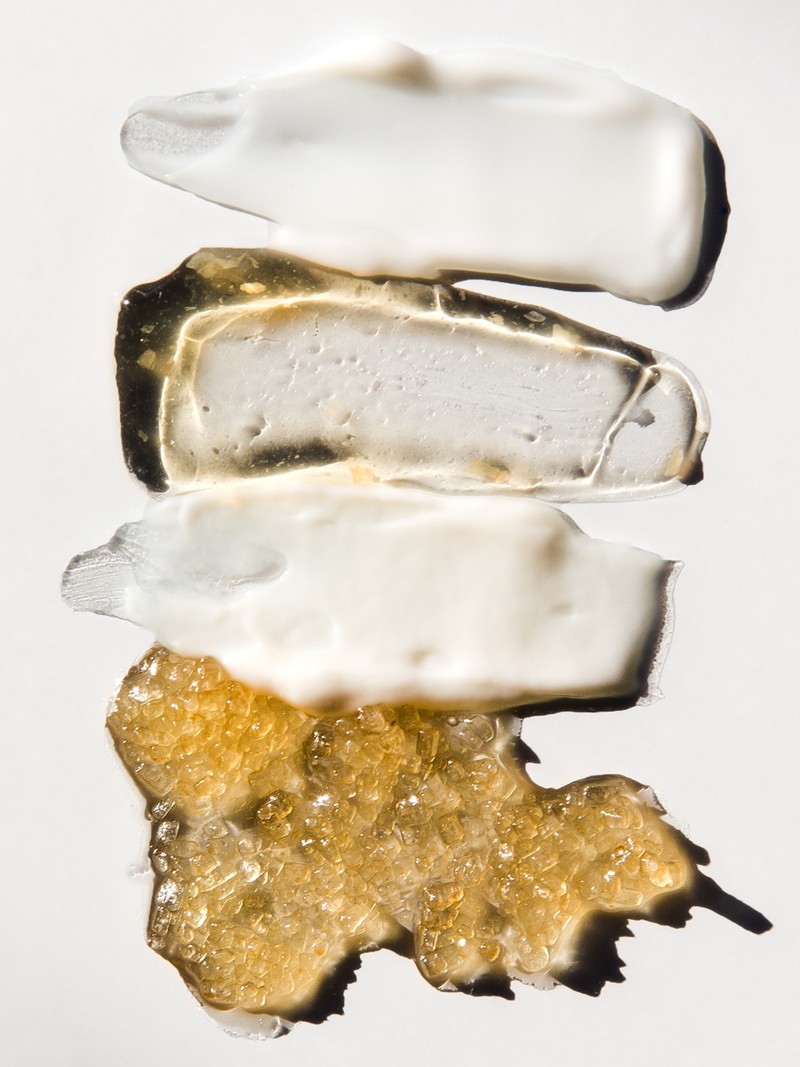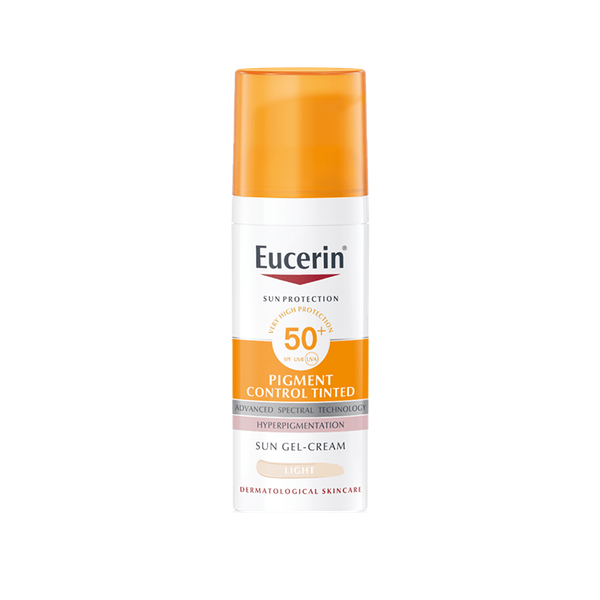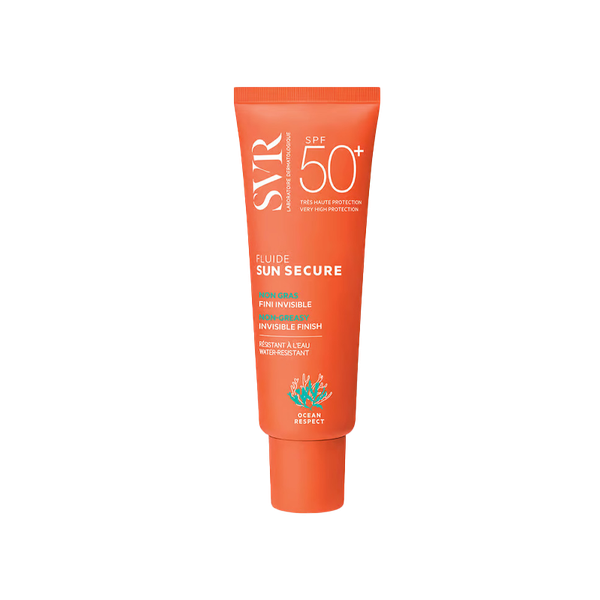My Skincare Lessons: Dr Justine Kluk
SPF Can’t Be Overlooked
“I was born in South Africa and I lived there until I was 12. People’s attitudes to the sun were very different in the early 80s. Sunscreen was called ‘sun-tan lotion’ – I think that says it all. Nowadays, we’re much better educated and understand the importance of topping up. When I was growing up, however, I had sunburn most weekends. Unfortunately, sun damage is cumulative, so I have marked freckling and pigmentation on exposed sites like my face and chest – that’s despite being meticulous with SPF throughout my adult life. My granny – who was fair and redheaded – hated going in the sun and told me it’s why her skin looked so good. It was the first skin health advice I was given. Now, ‘grown-up’ me wishes I’d listened more carefully at the time, but it’s never too late to further futureproof your skin.”
Focusing On Your Own Needs Is Vital
“We have all road-tested recipes, outfits and skincare hacks from friends or people on social media, only to end up disappointed when ours doesn’t turn out quite like theirs. Each of us is unique, so what works for one person will not necessarily work for you. This is true of viral skincare trends, and certainly of medical treatment for skin conditions. My advice is focus on yourself and your individual needs, and don’t worry about what other people are doing when it comes to managing a skin concern, because it’s never worth it.”
It Can Take Time To Treat Skin Conditions
“Apart from skin cancer, which is very treatable when detected early, many skin conditions have a long-term prognosis or outlook. Treatment can calm and control symptoms in many cases but may not cure them. I hope and expect that medical discoveries will change this in the future. In the meantime, always be sceptical of somebody who promises a ‘cure’ for a skin condition – it suggests that at best they don’t know what they are talking about and at worst they are consciously misleading you. Skin conditions take longer to respond to treatment than you might expect. This can feel desperately frustrating for both patient and doctor in the moment, but it does not mean the treatment will not work in the end. Conditions like acne, psoriasis or rosacea typically take two or three months to show signs of improvement, even with the correct treatment. Although it does require a hefty dose of patience when you first get started, many people are pleasantly surprised and very relieved when their skin turns a corner a few months down the line.”
Skin Routines Should Be Edited But Not Revamped
“My own skincare routine follows the same basic template it always has, but I do edit the products I’m using occasionally, as and when my skin concerns change. For instance, my current concerns are keeping my breakouts under control and minimising further sun damage (freckling and pigmentation). I would also like to keep my skin looking radiant, bouncy and smooth as I progress through my forties (I’m now 41). With this in mind, I use a simple cream or gel cleanser in the morning and follow up with an antioxidant serum – vitamin C, niacinamide or resveratrol – to defend exposed skin against pollution and UV rays. I’ll then apply a moisturiser and a very broad-spectrum sunscreen. In the evenings, I remove make-up and sunscreen with a micellar water, follow with a gel or cream cleanser, then a retinoid cream – which addresses all three of my main skin concerns – and then I moisturise again. It’s key to keep things simple, but to note where you want your focuses to be. I always adjust the morning and evening ‘active’ treatment steps in my routine for a targeted approach, but everything else remains the same.”
Some Products Do Stand Out From The Crowd
“Some regulars I swear by include Beauty Pie’s Niacinamide Superdrops Serum, NeoStrata’s Restore PHA Daily Moisturizer and Eucerin’s Pigment Control SPF50. I always have The Nue Co Barrier Culture Cleanser and Revision Skincare Gentle Cleansing Lotion on my bathroom shelf as well, and I swear by Medik8’s Crystal Retinal range – especially for night-time use.”
New Products Should Be Used Gradually
“One of the most important tips I can give you is to stagger any introduction of new skincare products – always one at a time. Sometimes you’re getting on well with your skin routine, confidently adding new products without any issues, and then all of a sudden your skin starts to feels sensitive. It may sting or itch, look dry or red, and peel or flake. Lots of people turn up in my clinic with this predicament, and the usual underlying issue is irritation or allergy from a product they have added. The challenge comes when you have added a bunch of new products all at once or in a short space of time, because the best way to identify the trigger is to stop everything apart from the absolute necessities – for instance cleanser and moisturiser – and add back each of the other products one at a time. Instead, if you gradually stagger introduction of new products, separating each addition by a month or more, you’ll find it much easier to pinpoint and remove the culprit if your skin suddenly starts to react without having to stop everything.”
Supplements Aren’t Essential For Healthy Skin
“A myth I’d like to debunk is that taking supplements to improve our skin is a good idea. Except for vitamin D – which we need to take in autumn and winter because we make less of our own from sunshine – and supplements that help with known deficiencies, there is not enough evidence that taking a whole host of supplements ‘just in case’ is necessary or helpful for most people trying to improve a skin concern. We can get most of the nutrients we need from the food we eat, and this is how our bodies absorb these nutrients best. The good news is that food is cheaper than supplements and tastes better.”
Skin Health Requires A 360° Approach
“Another thing I wish more people knew is that skin health requires us to look beyond just the skin itself. Although our genes undoubtedly have a big influence on how we look and feel, stress, sleep, pollution, skincare practices and even the food we eat can each dial the risk of skin disorders up and down. There are strong connections between our skin, the environment and the rest of our bodies – for instance our gut, immune system, brain and hormones. While this can sound overwhelming, it means we are less stuck with our genes than we think. If you have been taking treatment for a skin issue and it’s not getting better, there are now many more avenues for you to explore.”
A Trusted Source Is Key For Better Skin
“If you’re looking to treat a condition or overhaul your complexion, find a source you trust for advice. There are lots of opinions about what you should or shouldn’t be doing to have healthy skin – from the foods you eat to the products you put on your face. These opinions are often conflicting and confusing, which can raise doubts when you have already committed to a plan of action. The consequence is we often give up on a plan before we’ve had a chance to reap the benefits, hopping from one thing to another in a scattergun fashion. My advice is, once you have done your homework and found an expert whose advice you trust, try not get distracted by the noise from other sources. I have developed an online programme for people who don’t live near the clinic, can’t get an appointment or don’t necessarily want one, but do want to learn as much as they can about their acne and how to manage it. My course is called Clear Skin Programme: A Personalised Roadmap to Overcome Adult Acne for Women and is available to access at drjustinekluk.com/course.”
Acne Requires Early Action
“Acne affects half of women in their twenties, a third of women in their thirties and a quarter of women in their forties. Because it’s common, there seems to be an unwritten expectation that you should either be a martyr and put up with it or self-manage with over-the-counter skincare solutions regardless of the severity. This might be acceptable if the acne is mild, but I think we all deserve better. My advice is to get advice from an expert early if you are struggling with acne. Skin conditions are visible, may leave scars and can have a long-lasting impact on self-esteem. From discussions with my patients over the years, I have heard that some of the barriers to seeing a doctor are that they don’t think they will be taken seriously, that the doctor will just write a prescription without taking the time to understand the person holistically and that it will be a complete waste of time. I understand these fears, but I want people to know that for every doctor who hasn’t made you feel heard, there are so many more who genuinely care and want to help. It is so important to find a doctor who is a good fit for you, who takes time to listen to your concerns and who answers your questions so that you feel more in control.”
Make-Up Isn’t A No-Go If You Suffer With Breakouts
“I am always asked whether make-up is still allowed with acne. The answer is always yes. If your breakouts make you feel self-conscious and they stop you from doing the things you love to do, or if you simply take pleasure in getting glammed up, there is no problem with wearing non-comedogenic – non-pore-blocking – make-up.”
There Are Two Treatments Really Worth The Investment
“Two treatments I love for myself are microneedling and Profhilo. Both involve minimal downtime – redness from needling usually lasts less than 24 hours and swelling or bumps from Profhilo disappear after a couple of hours. These two treatments make a big difference to how my skin looks and feels – it is firmer and smoother from the needling, and more plumped, bouncy and hydrated from the Profhilo. For people in their thirties and beyond who want to improve the quality of their skin without changing how they look, these would be some of my top picks.”
Retinoid ‘Sandwiching’ Can Be Highly Effective
“Whenever my skin is particularly dry or sensitive from using my retinoid cream overnight, I follow the ‘sandwiching’ technique. This is where I layer a hydrating serum or moisturiser underneath the retinoid, and then apply a second thicker layer of moisturiser ten to 15 minutes later. In many cases this has allowed me to keep going with a retinoid when I would otherwise have had to reduce the number of evenings I apply it or take a break from it altogether. Always moisturise in the mornings too.”
…As Can Pimple Patches
“They stop you from picking, which can lead to infection and scarring. They also speed up the healing process. They’re not a gimmick and I believe everyone should have a pack on their skincare shelf. Speaking of things to keep handy, blotting papers are great too – especially for soaking up mid-afternoon shine.”
Double Cleansing Is Important For Acne Sufferers
“If you wear sunscreen or make-up, double cleansing is a good way to ensure effective removal. This is especially important in people who are prone to acne, as a build-up of these products can combine with sebum and dead skin cells, leading to pore clogging and inflammation. Double cleansing seems to be a controversial topic; however, it is possible to do it without stripping your skin if you choose appropriately gentle cleansing products. For example, foaming cleansers and those containing alpha, or beta hydroxy acids are much more likely to cause tightness, dryness and irritation than cream cleansers. You can also mitigate the risk of dryness or sensitivity by keeping the rest of your routine simple, targeted and free of unnecessary gadgets or gimmicks.”
Finally, Have Faith In The Process
“My biggest skincare motto is to take a simple, targeted approach and to also be consistent and have patience. I have seen far too many perfectly constructed skincare routines that are already delivering the goods knocked off course by FOMO. Stick to your guns and individual needs.”
Follow @DrJustineKluk For More Advice & Skin Tips
Book In With Justine At DrJustineKluk.com
SHOP JUSTINE'S TOP SKIN PICK'S
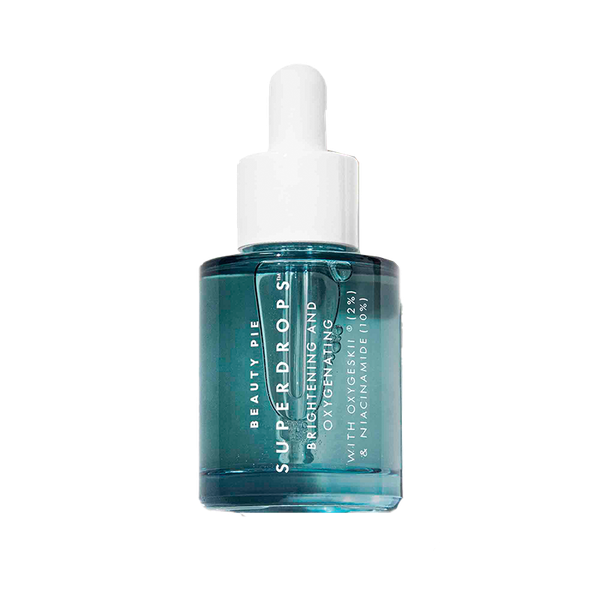
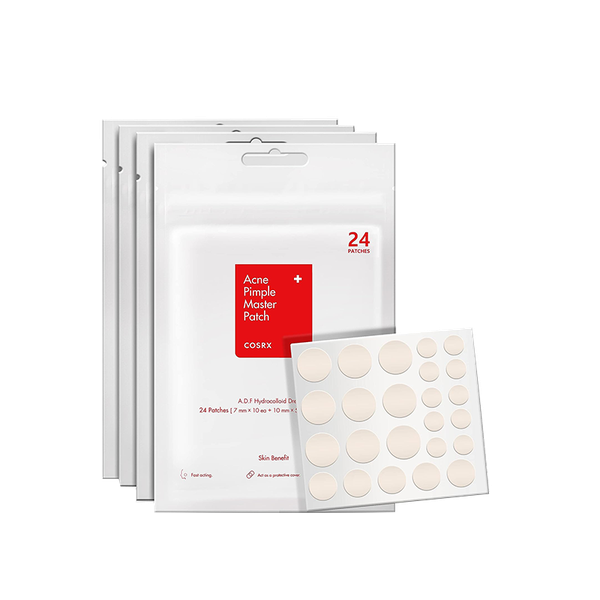
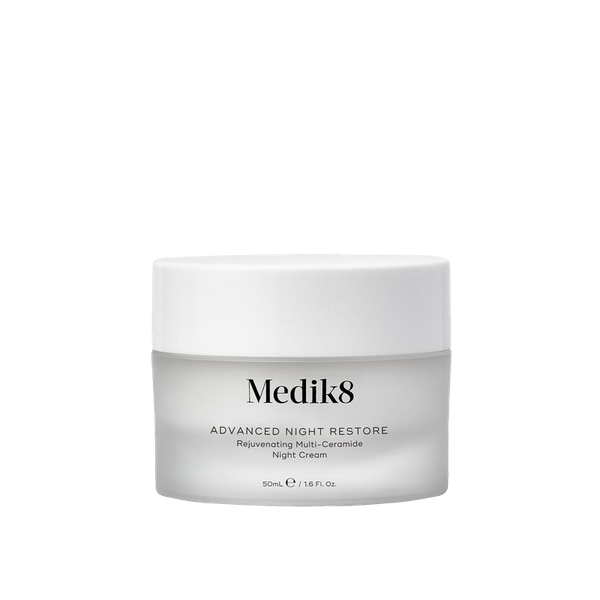
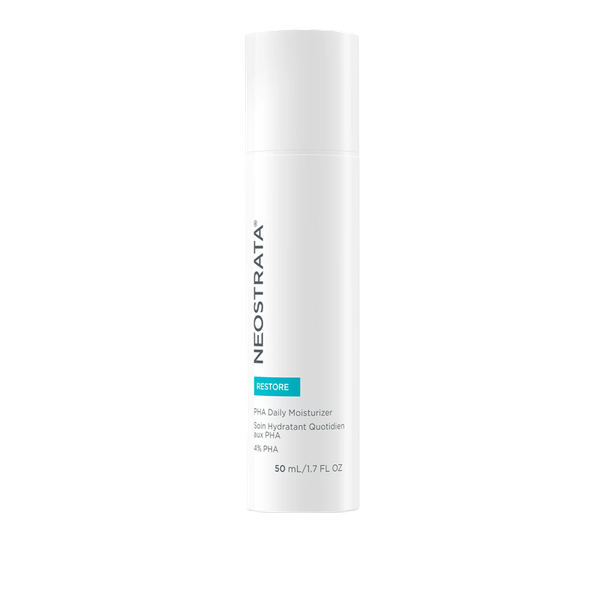
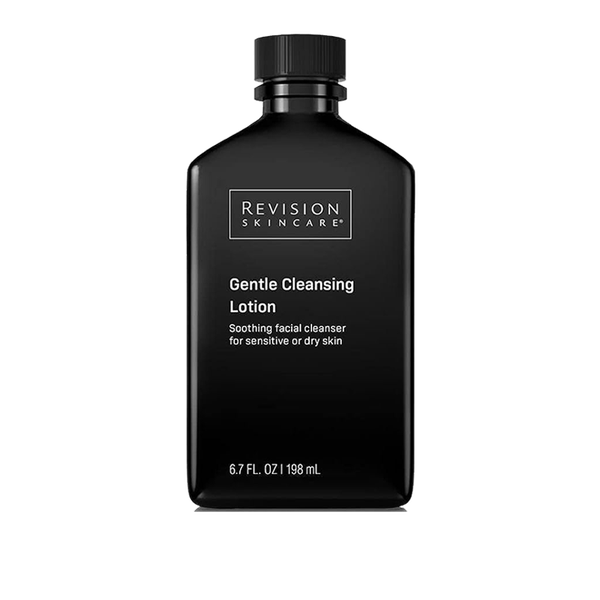
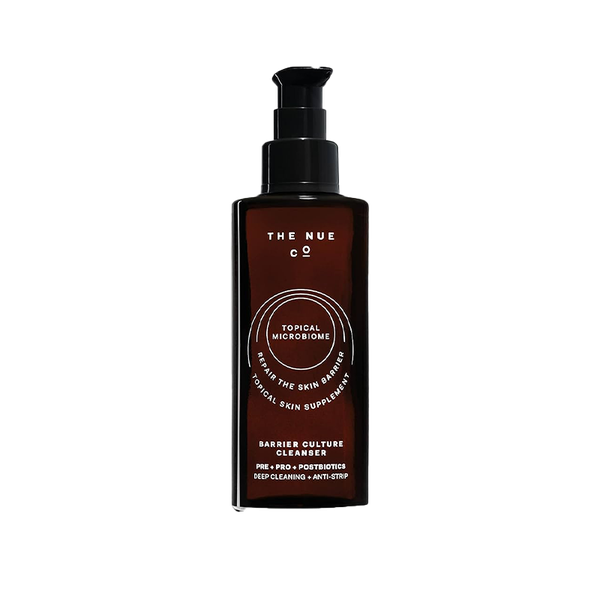
DISCLAIMER: We endeavour to always credit the correct original source of every image we use. If you think a credit may be incorrect, please contact us at info@sheerluxe.com.
